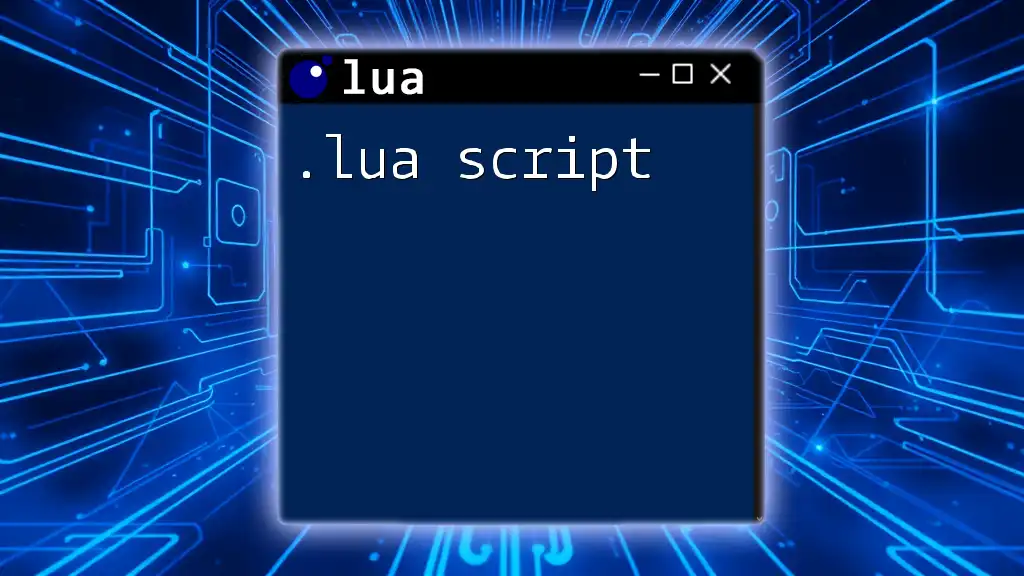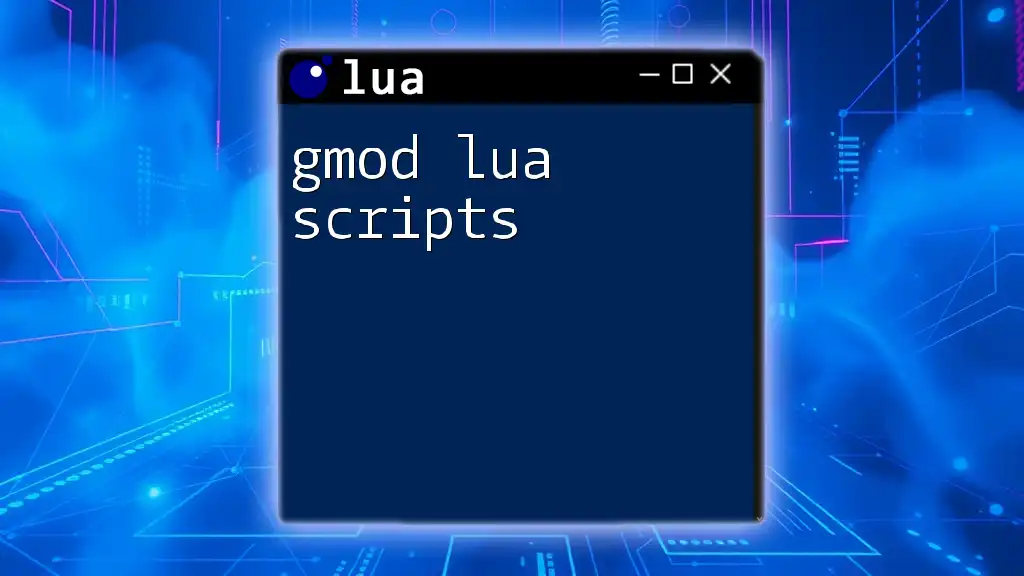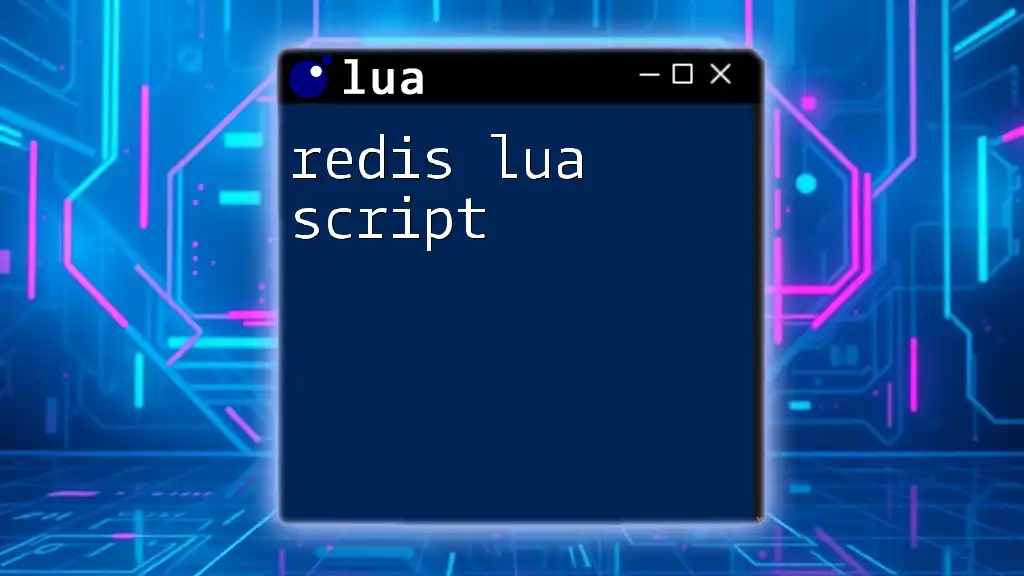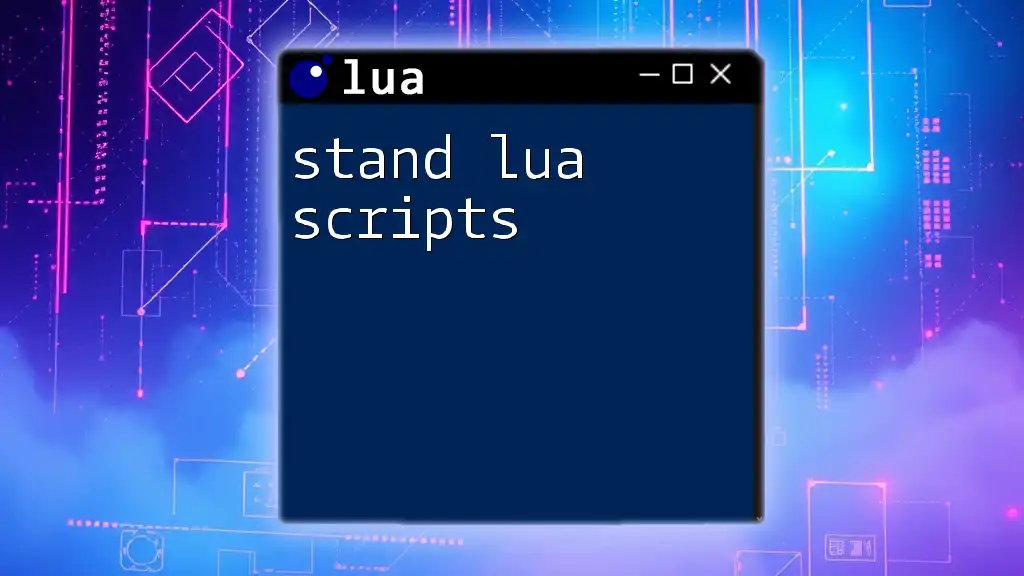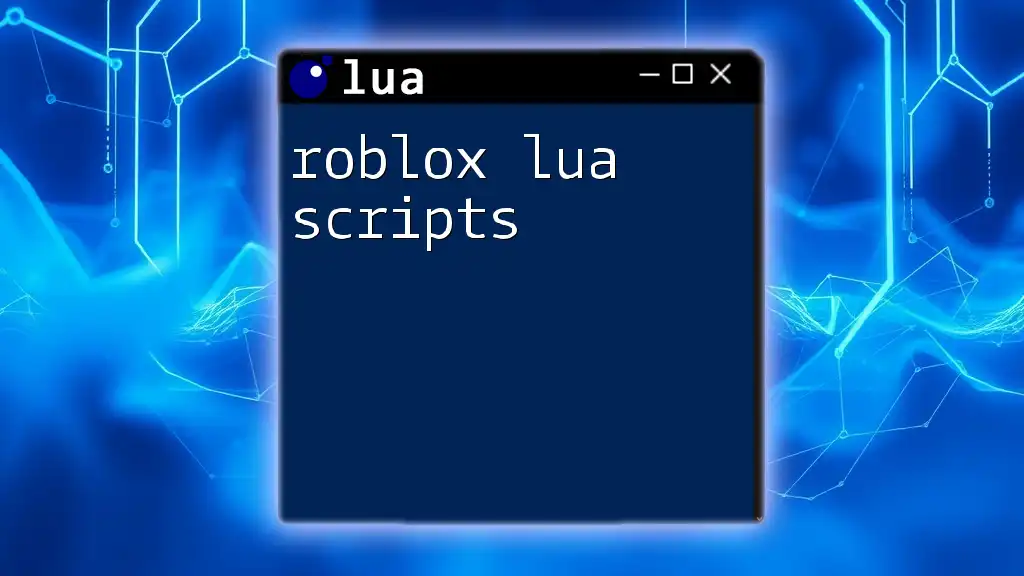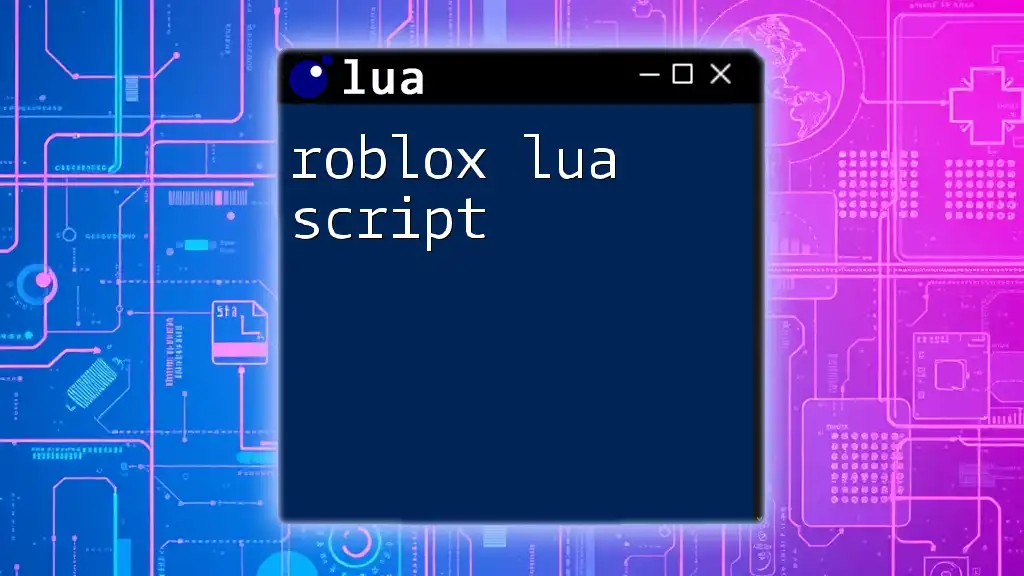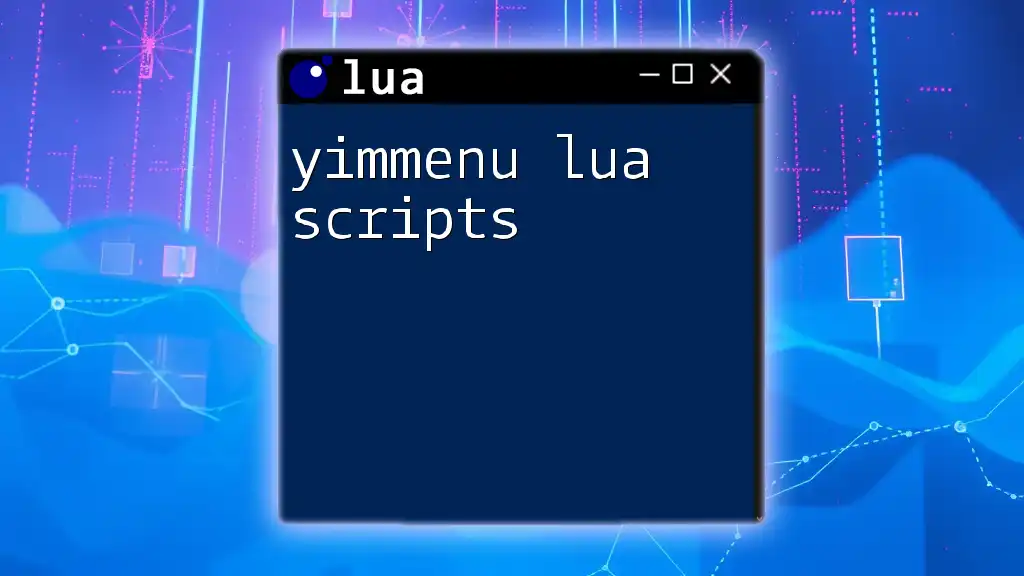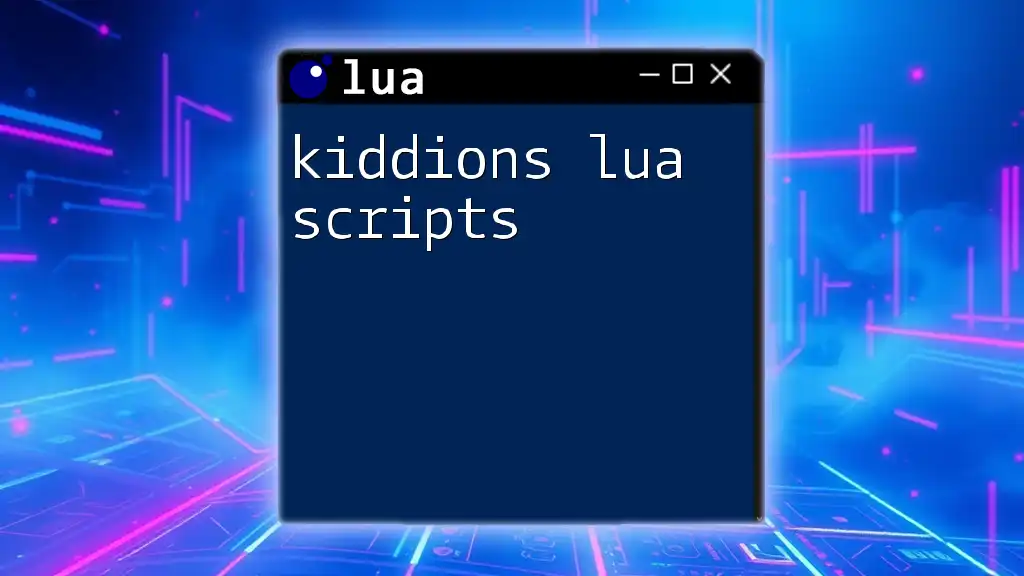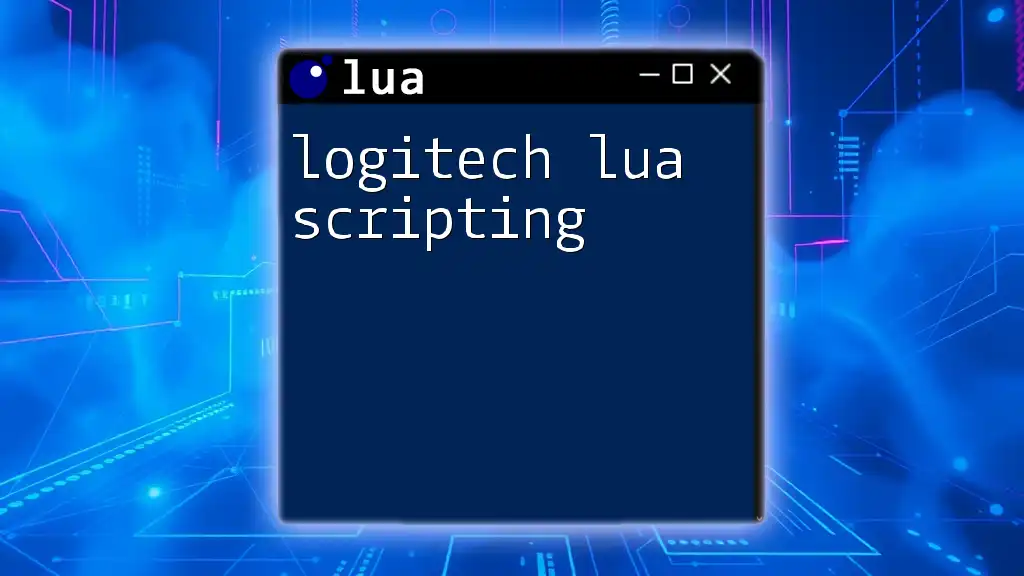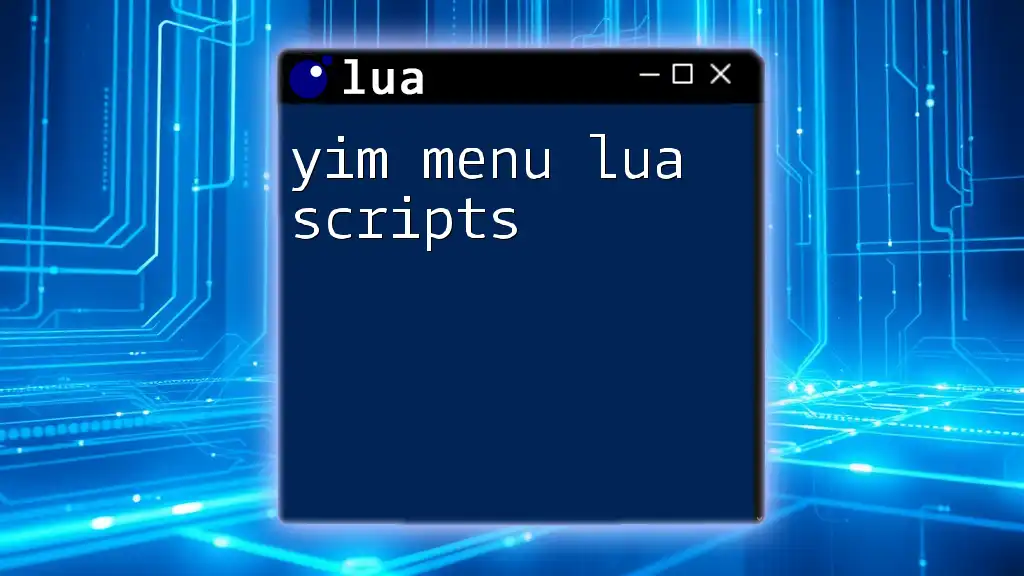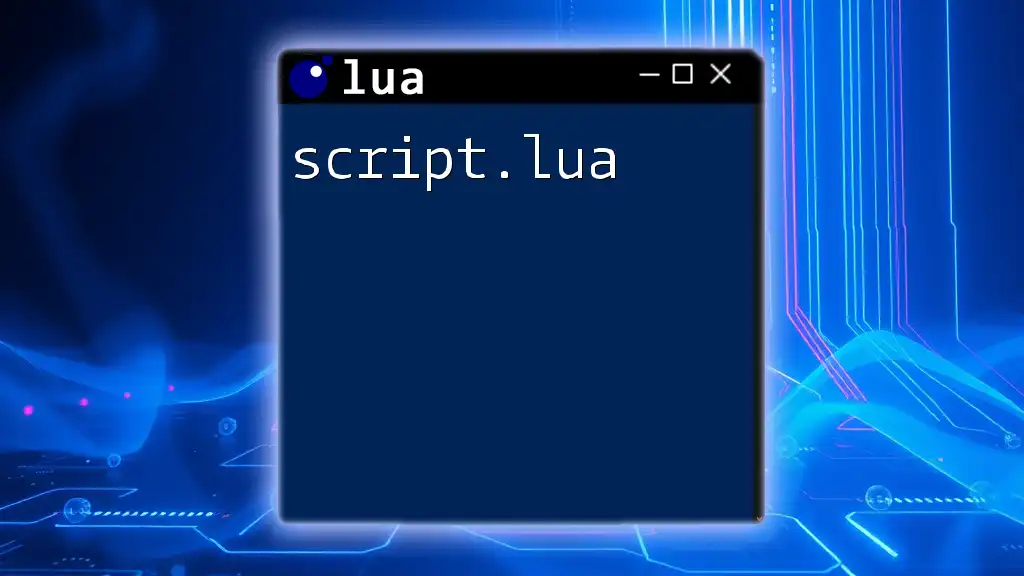A .lua script is a plain text file containing code written in the Lua programming language, which is often used for scripting in game development and embedded systems.
-- Example of a simple Lua script that prints "Hello, World!" to the console
print("Hello, World!")
Introduction to .lua Scripts
What is Lua?
Lua is a powerful, efficient, lightweight scripting language designed for embedded use in applications. Originating in Brazil in the early 1990s, Lua has grown in popularity, particularly in game development, due to its simplicity and flexibility. The language is easily integrated with C/C++ programs, making it an excellent choice for game engines and other applications.
Understanding .lua Files
Files with the `.lua` extension are Lua script files that contain code written in Lua syntax. These scripts are executed by the Lua interpreter, transforming the code into actionable commands for the program that uses it. A wide variety of platforms harness `.lua` scripts, including gaming engines like Love2D and Roblox, as well as web applications.
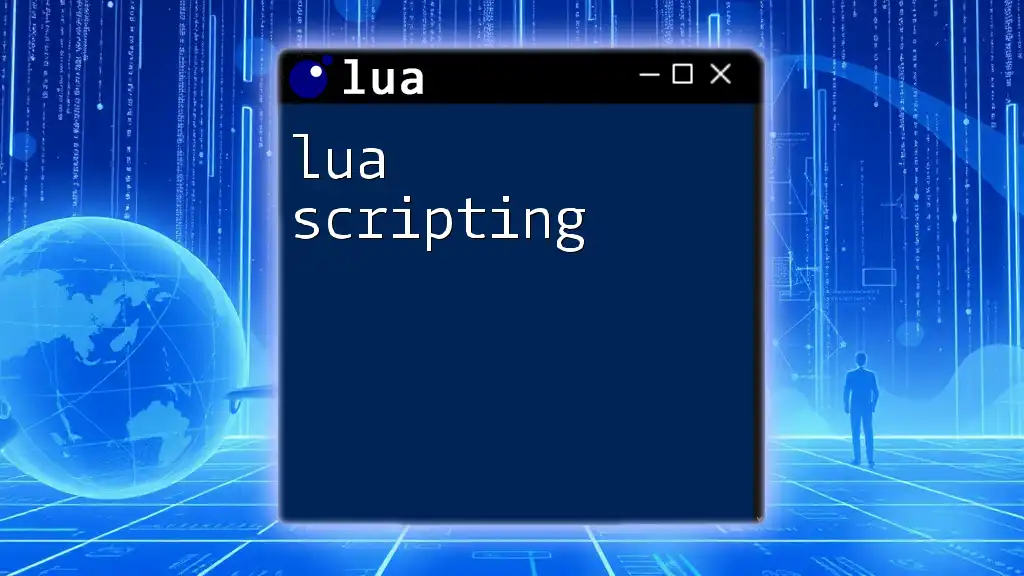
Setting Up Your Environment
Installing Lua
To start writing .lua scripts, you first need to install Lua on your machine. Here’s how to do it across different operating systems:
- Windows: Download the Lua binaries from the official Lua website. After downloading, unzip the files and set your environment path to include the Lua executable.
- Mac: You can easily install Lua using Homebrew with the command `brew install lua`.
- Linux: Most distributions allow you to install Lua from the package manager. For instance, in Ubuntu, you can execute `sudo apt-get install lua5.3`.
Recommended IDEs and Text Editors
Several IDEs support Lua development, such as ZeroBrane Studio and IntelliJ IDEA with Lua plugin. For a lightweight option, you can use text editors like Visual Studio Code, Sublime Text, or Notepad++ which provide Lua plugin support.
Running Your First .lua Script
Once Lua is installed, you can create and run your first script easily.
- Open your command line or terminal.
- Create a new file called `hello.lua` and open it in your text editor.
- Add the following line to your `.lua` file:
print("Hello, World!")
- Save the file and execute it from the command line by navigating to the file's directory and entering `lua hello.lua`.
When you run this script, it will output "Hello, World!" to the console, indicating your Lua environment is correctly set up.
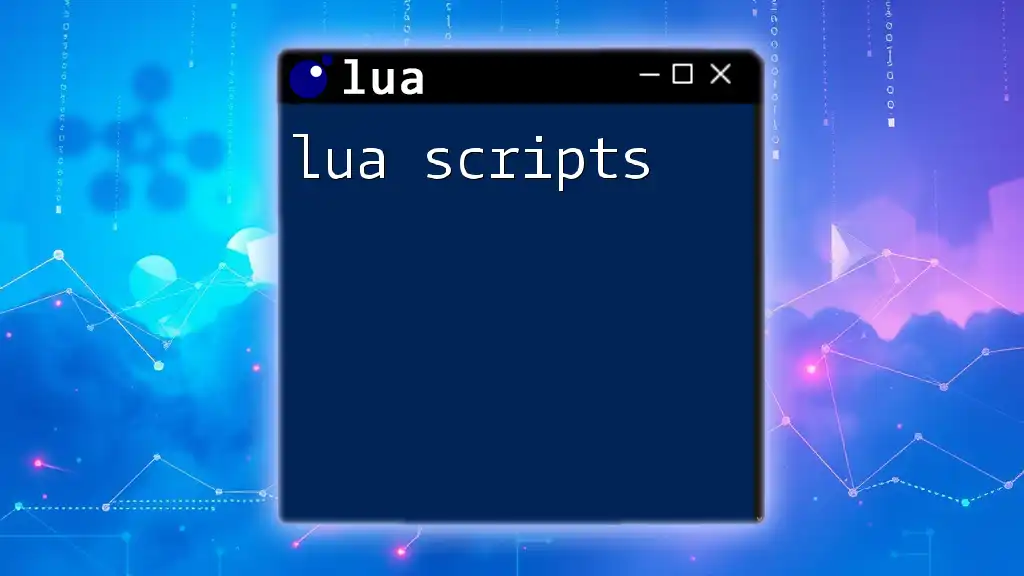
Syntax and Structure of .lua Scripts
Basic Syntax
Lua’s syntax is clean and easy to learn, featuring various data types like string, number, boolean, nil, and table.
Variable declaration is straightforward. You can declare a variable with the `local` keyword for local scope, as shown here:
local name = "Lua Learner"
Control Structures
Control structures in Lua allow you to dictate the flow of execution based on conditions. Here’s an example using if statements:
if name == "Lua Learner" then
print("Welcome!")
else
print("Hello!")
end
Loops are also an essential feature, with both `for` and `while` loops available. Here’s an example of a simple `for` loop:
for i = 1, 5 do
print(i)
end
This loop will print numbers 1 through 5 to the console.
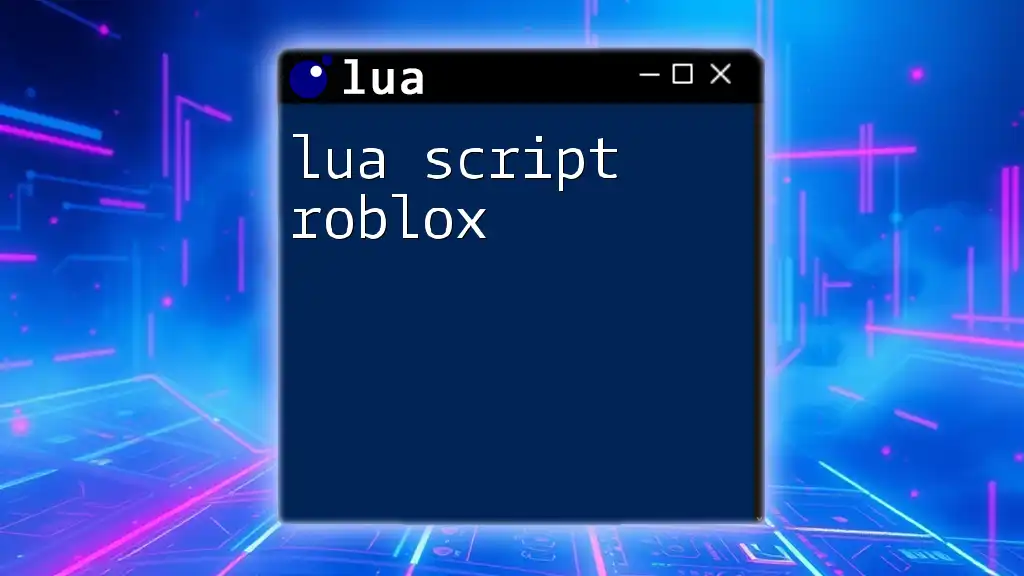
Functions in Lua
Defining Functions
Functions are central to Lua scripting, allowing you to encapsulate code for reuse. You can define a function using the `function` keyword:
function greet(name)
return "Hello, " .. name
end
This function concatenates the string "Hello, " with the `name` argument.
Using Functions
Invoking functions is straightforward. For instance, to call the `greet` function defined above, you could use:
print(greet("Lua Learner"))
This would output "Hello, Lua Learner" to the console.
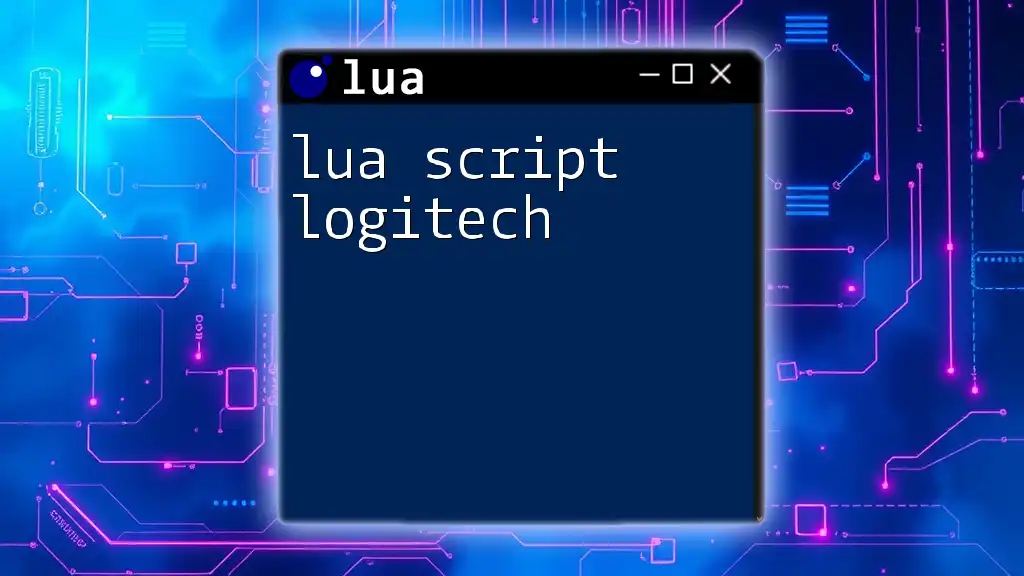
Advanced Lua Features
Tables: The Core Data Structure
Tables are one of Lua's most powerful features, serving as the primary data structure. They can hold key-value pairs and function as arrays or dictionaries.
Example:
local student = {name = "John", age = 21}
You can access and modify the properties of a table quite easily:
print(student.name) -- Outputs "John"
student.age = 22
Metatables and Metamethods
Metatables allow you to change the behavior of tables in Lua. You can set up a metatable to define how table operations behave. Here's an example of setting a metatable:
local t = {}
local mt = {
__index = function(table, key)
return "Key doesn't exist!"
end
}
setmetatable(t, mt)
With this setup, if you attempt to access a nonexistent key in `t`, it will return your custom message.
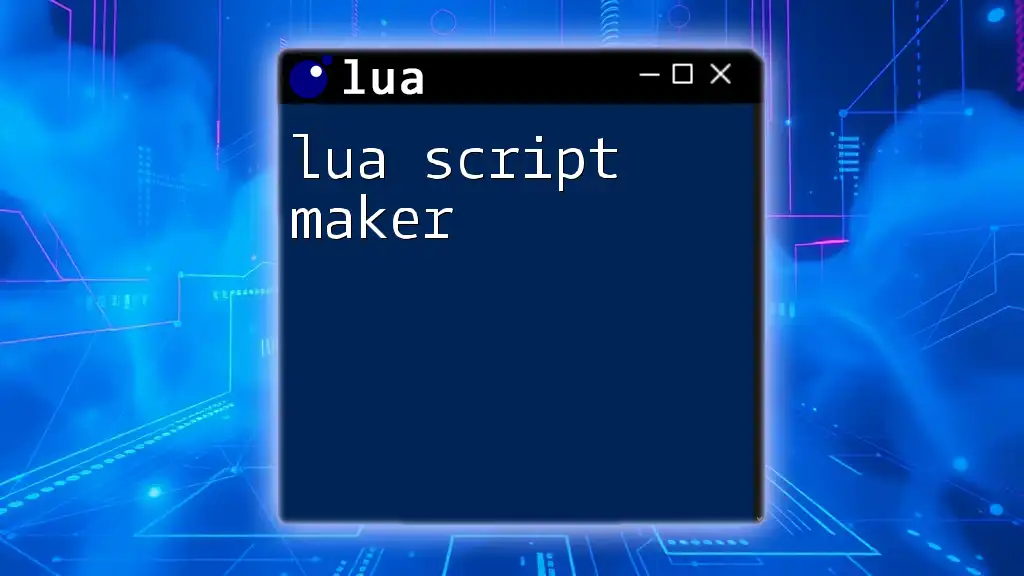
Error Handling in Lua
Common Errors and Debugging Techniques
Errors come in different forms, including syntax errors, runtime errors, and logical errors. Understanding these can help you debug efficiently.
Using pcall for Protected Calls
The `pcall` function allows you to call functions in a "protected" way, preventing the entire script from crashing due to errors. Here’s an example:
local status, err = pcall(function()
error("Oops!")
end)
if not status then
print("Caught an error: " .. err)
end
In this example, if an error occurs, it will be caught, and the error message will be printed instead of stopping the execution of the script outright.
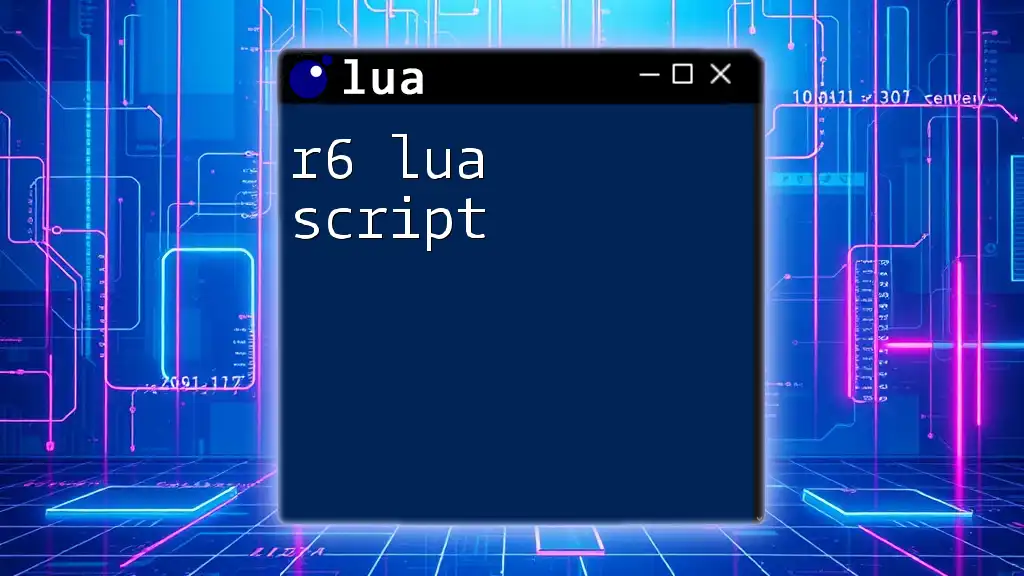
Best Practices for Writing .lua Scripts
Code Organization and Modularity
Maintaining a clear structure in your .lua scripts is vital for readability and maintainability. Organize your code into modules, grouping related functions and data together to avoid clutter.
Commenting and Documentation
Writing descriptive comments within your code can save you and others time in understanding the logic. Using inline comments enhances clarity:
-- This function greets the user
function greet(name)
return "Hello, " .. name
end
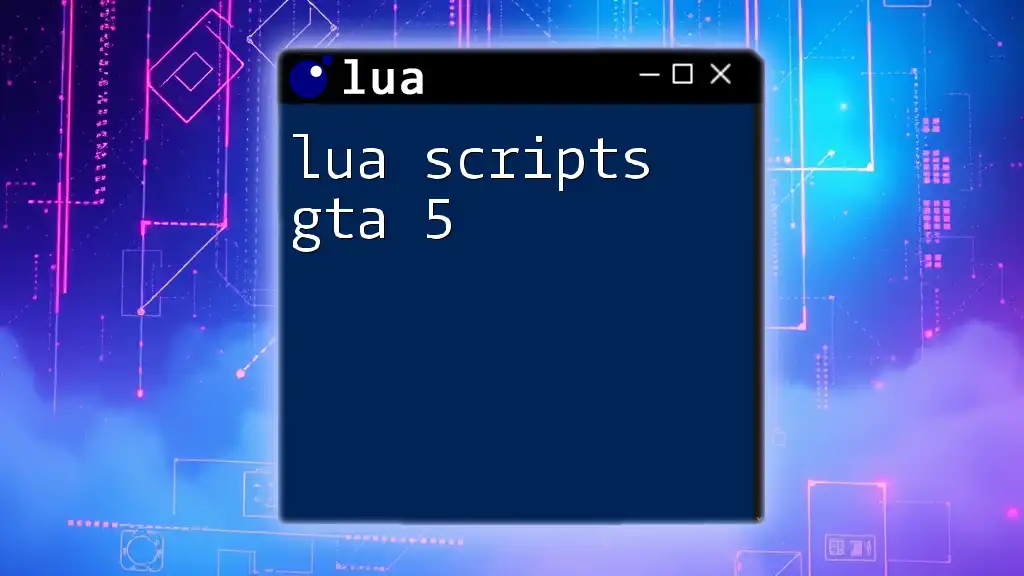
Real-World Applications of .lua Scripts
Game Development
Lua has become a staple in game development. Several game engines, like Corona SDK and Roblox, use Lua scripting for creating game logic, enabling developers to efficiently implement features with ease.
Web Development
Beyond gaming, Lua is also making its mark in web development. Frameworks such as Lapis use Lua for building web applications, highlighting Lua's versatility and powerful functionality.
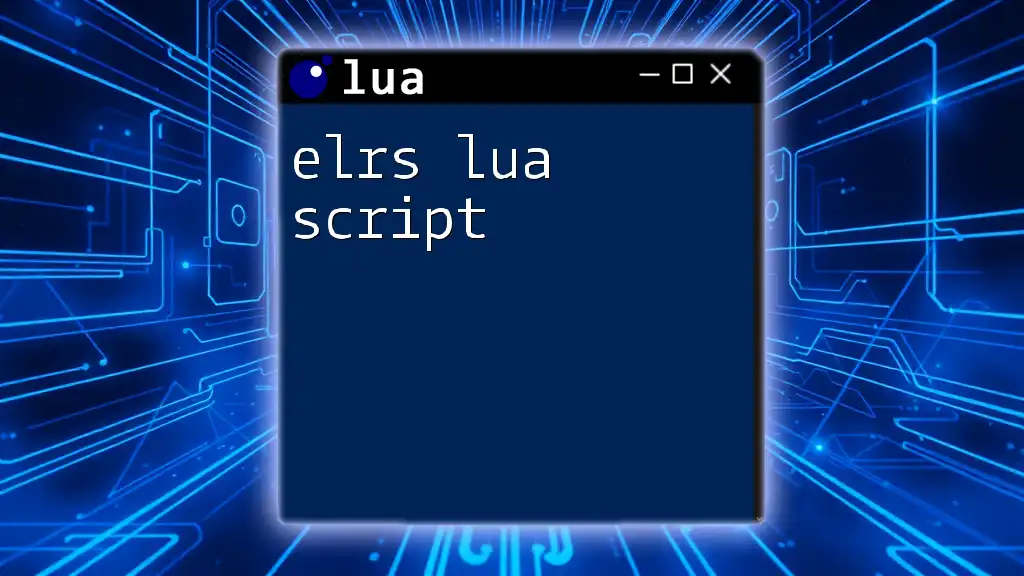
Conclusion
To recap, the use of .lua scripts is fundamental for those looking to explore Lua programming. With its unique features, flexible syntax, and broad application range, learning how to write .lua scripts enhances your coding capabilities. For those eager to dive deeper, myriad resources—such as books, online courses, and active forums—are available to aid your learning journey.
By practicing and developing your own .lua scripts, you can solidify your understanding and leverage the power of Lua in various programming contexts. Engage, experiment, and don’t hesitate to seek advice from the community as you progress in your Lua journey!

